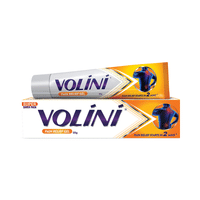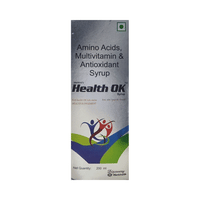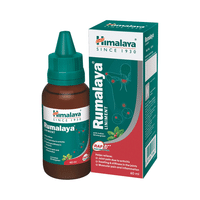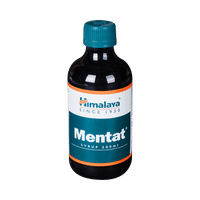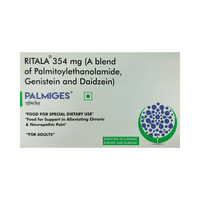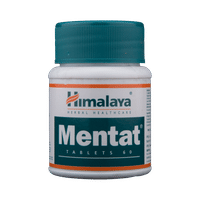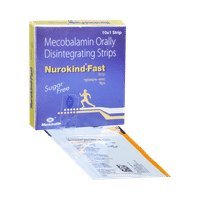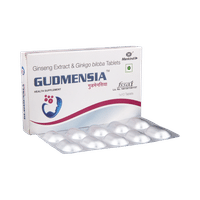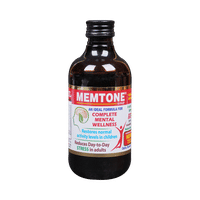Citelec सिरप के लिए भोजन प्रभाव
Citelec सिरप के लिए शराब प्रभाव
Citelec सिरप के लिए गर्भावस्था प्रभाव
Citelec सिरप के लिए स्तनपान प्रभाव
भोजन
शराब
गर्भावस्था
स्तनपान
इसे भोजन के साथ या उसके बिना लिया जा सकता है लेकिन Citelec Syrup को एक निश्चित समय पर लेना बेहतर होता है।
शराब के साथ इसके पारस्परिक प्रभाव की जानकारी नहीं है। कृपया अपने डॉक्टर की सलाह लें। कुछ नहीं
CONSULT YOUR DOCTOR
इंसानों और जानवरों पर किये गये अध्ययन उपलब्ध नहीं हैं। कृपया डॉक्टर से सलाह लें।
CONSULT YOUR DOCTOR
स्तनपान के दौरान Citelec Syrup का इस्तेमाल करना संभवतः असुरक्षित है। इस विषय पर इंसानों या जानवरों पर किए गए अध्ययन उपलब्ध नहीं हैं।
CONSULT YOUR DOCTOR
Citelec 500mg/5ml सिरप की लवण सम्बन्धी जानकारी
Citicoline(500mg/5ml)
Citelec सिरप का उपयोग
Citelec Syrup का इस्तेमाल स्ट्रोक (मस्तिष्क में होने वाली रक्त की आपूर्ति में कमी), सिर में चोट, अल्जाइमर रोग (मस्तिष्क विकार जो स्मृति और बौद्धिक क्षमता को प्रभावित करता है) और पार्किंसंस रोग (तंत्रिका तंत्र का एक विकार जिसके कारण आंदोलन और संतुलन में कठिनाई होती है) में मनोभ्रंश में किया जाता है
Citelec सिरप कैसे काम करता है
सिटिकोलिन, शायद फॉस्फेटीडाइलकोलाइन नामक एक मस्तिष्क केमिकल को बढ़ाता है। यह मस्तिष्क केमिकल, मस्तिष्क की क्रियाशीलता के लिए महत्वपूर्ण है। सिटिकोलिन, मस्तिष्क के घायल होने पर मस्तिष्क ऊतक की क्षति को भी कम कर सकता है।
सिटिकोलिन, शायद फॉस्फेटीडाइलकोलाइन नामक एक मस्तिष्क केमिकल को बढ़ाता है। यह मस्तिष्क केमिकल, मस्तिष्क की क्रियाशीलता के लिए महत्वपूर्ण है। सिटिकोलिन, मस्तिष्क के घायल होने पर मस्तिष्क ऊतक की क्षति को भी कम कर सकता है।
Citelec सिरप के सामान्य दुष्प्रभाव
दस्त, पेट में दर्द , रक्तचाप में कमी, अनियमित हार्ट रेट
Citelec सिरप का विकल्प
11 विकल्प
11 विकल्प
Sorted By
 Rs. 842.34pay 100% more per ml of Syrup
Rs. 842.34pay 100% more per ml of Syrup Rs. 842.34pay 103% more per ml of Syrup
Rs. 842.34pay 103% more per ml of Syrup Rs. 734pay 74% more per ml of Syrup
Rs. 734pay 74% more per ml of Syrup Rs. 887.60pay 110% more per ml of Syrup
Rs. 887.60pay 110% more per ml of Syrup Rs. 500.63pay 19% more per ml of Syrup
Rs. 500.63pay 19% more per ml of Syrup
Citelec सिरप के लिए विशेषज्ञ की सलाह
सिटिकोलाइन शुरू करने से पहले अपने डॉक्टर से संपर्क करें।
- यदि आप गर्भवती हैं, होने वाली हैं या स्तनपान कराती हैं, तो इस बारे में अपने डॉक्टर को बताएं।
- सिटिकोलाइन लेना बंद कर दें और अपने डॉक्टर को सूचित करें यदि आपको एलर्जी की प्रतिक्रियाओं का लक्षण दिखाई दे।
Citelec 500mg/5ml सिरप के लिए अक्सर पूछे जाने वाले सवाल
Citicoline
Q. I have been prescribed Citelec Syrup for Alzheimer’s disease. What is its role, and how does it work?
Citelec Syrup is a form of an essential nutrient called choline which is naturally present in the body. It protects the nerve cells in the brain from damage and also helps to repair the damaged nerve cells. Therefore, it improves learning, memory, and cognitive function (processing information or perception) in Alzheimer’s disease.
Q. Can I take alcohol during treatment with Citelec Syrup?
There are no studies to determine the effect of alcohol on treatment with Citelec Syrup. However, since Citelec Syrup is prescribed for stroke, Alzheimer’s disease, Parkinson’s disease, head injury, and age-related memory impairment, it is best to avoid the consumption of alcohol.
Q. Can students take Citelec Syrup to improve memory and learning?
No, students should not take Citelec Syrup since studies show that Citelec Syrup is effective only in age-related memory problems, memory problems associated with long-standing stroke, and in Alzheimer’s disease. Moreover, there is no data available for use of this medicine in children.













